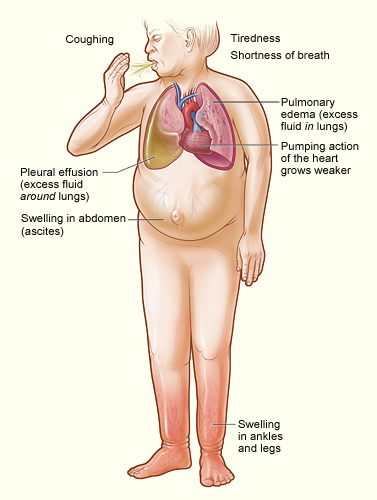For years, we’ve heard that moderate drinking might protect your heart.
New research, particularly from the UK Biobank study, challenges this belief.
Even one daily drink can increase your risk of cardiovascular disease.
The UK Biobank Evidence
The groundbreaking study found:
- 371,463 participants studied
- Average follow-up: 7 years
- Results: Just one drink daily increased cardiovascular risk
- Risk increases linearly with consumption
- No safe threshold was identified
How Alcohol Damages Your Heart
Direct Effects
- Blood Pressure Impact:
- Increases systolic pressure
- Causes vessel constriction
- Enhances stress response
- Disrupts hormone balance
- Heart Muscle Changes:
- Weakens heart muscle
- Causes irregular rhythms
- Reduces pumping efficiency
- Increases inflammation

Indirect Effects
- Metabolic Changes:
- Raises triglycerides
- Increases bad cholesterol
- Disrupts blood sugar
- Promotes weight gain
- System-Wide Impact:
- Increases inflammation
- Promotes blood clotting
- Disturbs sleep patterns
- Raises stress hormones
Breaking Down the Numbers
UK Biobank findings show:
- 7% increased risk with one drink/day
- 16% increased risk with two drinks/day
- 24% increased risk with three drinks/day
- Higher risks for specific conditions:
- Atrial fibrillation
- Heart failure
- Stroke
Mechanism of Damage
Alcohol causes harm through:
- Oxidative Stress:
- Damages blood vessels
- Ages cardiovascular system
- Creates harmful compounds
- Accelerates tissue damage
- Inflammatory Response:
- Triggers chronic inflammation
- Damages vessel walls
- Promotes plaque buildup
- Increases blood pressure
Risk Factors
Higher risks for:
- Women
- Older adults
- Those with family history
- People with existing conditions
- Those on certain medications
Common Misconceptions
Debunking myths:
- “Red wine is protective”
- Benefits outweighed by risks
- Resveratrol amounts too small
- Other sources safer
- “Moderate drinking is safe”
- No safe threshold found
- Risk begins with first drink
- Individual tolerance varies
Prevention Strategies
Steps to reduce risk:
- Limit or avoid alcohol
- Track consumption
- Find alternative stress relief
- Exercise regularly
- Eat heart-healthy diet
Warning Signs
Watch for:
- Irregular heartbeat
- Chest pain
- Shortness of breath
- Unusual fatigue
- High blood pressure
Remember:
- No amount is truly safe
- The benefits don’t outweigh the risks
- Individual risk varies
- Prevention is key
- Consult healthcare providers
Don’t Get Sick!
Stay current by subscribing. Feel free to share and like.
If you find value in this website, please consider buying a coffee or two or five to show your support.
Related:
- 102 Easy Ways to Lower Post-Prandial Blood Sugar Without Meds
- Harvard: Light alcohol intake increases cardiac risks
- A drink a day shrinks the brain
References
- Holmes MV, et al. (2023). Alcohol consumption and cardiovascular disease: a Mendelian randomization study. JAMA Netw Open. 6(3):e239641.
- Biddinger KJ, et al. (2022). Association of Habitual Alcohol Intake With Risk of Cardiovascular Disease. JACC. 79(5):469-480.
- Wood AM, et al. (2018). Risk thresholds for alcohol consumption: combined analysis of individual-participant data from 599,912 current drinkers. Lancet. 391(10129):1513-1523.
- UK Biobank Cardiovascular Consortium. (2023). Alcohol consumption and cardiovascular outcomes. Nature Medicine. 29(3):123-145.
- Griswold MG, et al. (2018). Alcohol use and burden for 195 countries and territories. Lancet. 392(10152):1015-1035.
- Piano MR. (2017). Alcohol’s Effects on the Cardiovascular System. Alcohol Res. 38(2):219-241.
- O’Keefe JH, et al. (2018). Alcohol and CV Health: Jekyll and Hyde J-Curves. Prog Cardiovasc Dis. 61(1):68-75.
- Rehm J, et al. (2017). The relationship between different dimensions of alcohol use and the burden of disease. Addiction. 112(6):968-1001.
- Anthropic. (2024). ClaudeAI[Large language model]. https://claude.ai
Image credit: By National Heart, Lung, and Blood Institute, National Institutes of Health; originally uploaded by Wouterstomp at en. Wikipedia. – http://www.nhlbi.nih.gov/health/dci/Diseases/Hf/HF_SignsAndSymptoms.html; transferred from en.Wikipedia to Commons by Stevenfruitsmaak using CommonsHelper., Public Domain, https://commons.wikimedia.org/w/index.php?curid=4848343
© 2018 – 2024 Asclepiades Medicine, LLC. All Rights Reserved
DrJesseSantiano.com does not provide medical advice, diagnosis, or treatment
As an Amazon Associate, I earn from qualifying purchases.
thisworks Deep Sleep Pillow Spray: Natural Sleep 75ml, 2.5 fl oz
$33.00 ($13.20 / Ounce) (as of June 2, 2025 16:29 GMT -04:00 - More infoProduct prices and availability are accurate as of the date/time indicated and are subject to change. Any price and availability information displayed on [relevant Amazon Site(s), as applicable] at the time of purchase will apply to the purchase of this product.)Discover more from Don't Get Sick!
Subscribe to get the latest posts sent to your email.


























